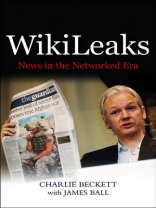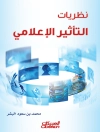Wiki Leaks is the most challenging journalistic phenomenon to have emerged in the digital era. It has provoked anger and enthusiasm in equal measure, from across the political and journalistic spectrum.
Wiki Leaks poses a series of questions to the status quo in politics, journalism and to the ways we understand political communication. It has compromised the foreign policy operations of the most powerful state in the world, broken stories comparable to great historic scoops like the Pentagon Papers, and caused the mighty international news organizations to collaborate with this tiny editorial outfit. Yet it may also be on the verge of extinction.
This is the first book to examine Wiki Leaks fully and critically and its place in the contemporary news environment. The authors combine inside knowledge with the latest media research and analysis to argue that the significance of Wikileaks is that it is part of the shift in the nature of news to a network system that is contestable and unstable. Welcome to Wiki World and a new age of uncertainty.
Зміст
Preface by Emily Bell vii
Introduction 1
1 What was new about Wiki Leaks? 15
1.1 The creation of Wiki Leaks 15
1.2 The challenge of Wiki Leaks to alternative journalism 26
1.3 The challenge of Wiki Leaks to mainstream media journalism
32
1.4 The challenge of Wiki Leaks to power 40
2 The greatest story ever told? The Afghan war logs, Iraq war
logs and the Embassy cables 46
2.1 Introduction 46
2.2 Collaboration and the Afghan war logs 48
2.3 The Iraq war logs: collaboration under stress 55
2.4 The cables and the legal attack 59
2.5 Rights, risks and responsibilities 67
2.6 The responsibility of journalism to avoid harm 69
2.7 Responsibility to tell the truth 72
2.8 Responsibility to hold power to account 75
2.9 Conclusion 83
3 Wiki Leaks and the future of journalism 85
3.1 Introduction 85
3.2 Wiki Leaks as part of the battle for the open Net 92
3.3 Wiki Leaks as a model 114
3.4 Hacktavism redux 117
3.5 Advocacy NGO journalism 120
3.6 Foundation and public journalism 122
3.7 Mainstream whistle-blowers 127
4 Social media as disruptive journalism: media, politics and
network effects 130
4.1 Transparency and the network 131
4.2 Social media as political communications: ‘The Arab Spring’
135
4.3 Wiki Leaks – what next? 141
4.4 Conclusion: Wiki Leaks, networked journalism and power
147
Epilogue 160
Notes 165
Bibliography 182
Index 190
Про автора
Charlie Beckett is Director of POLIS at the London School of
Economics.
James Ball is a journalist with The Guardian and
visiting lecturer at City University, London.












